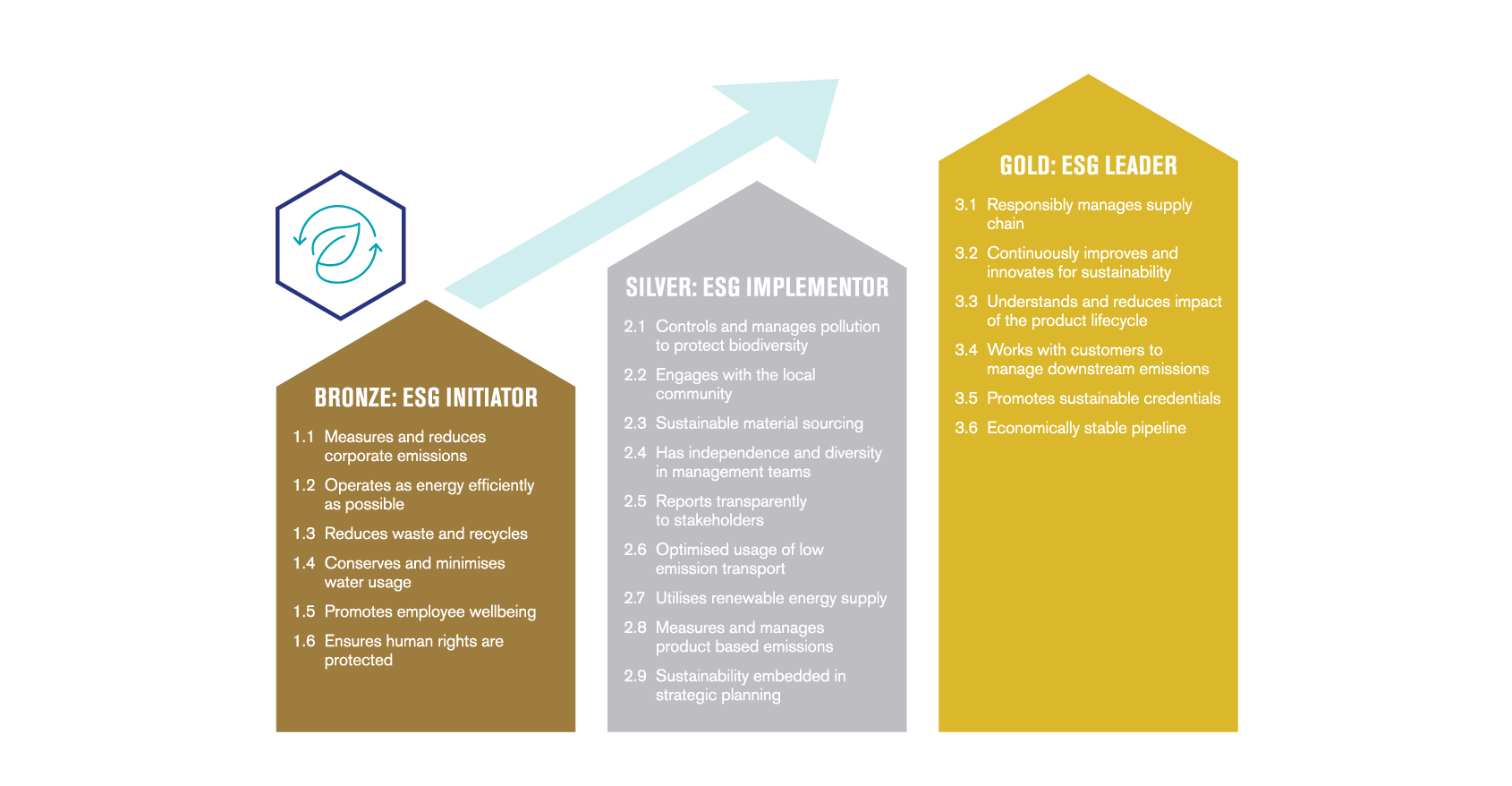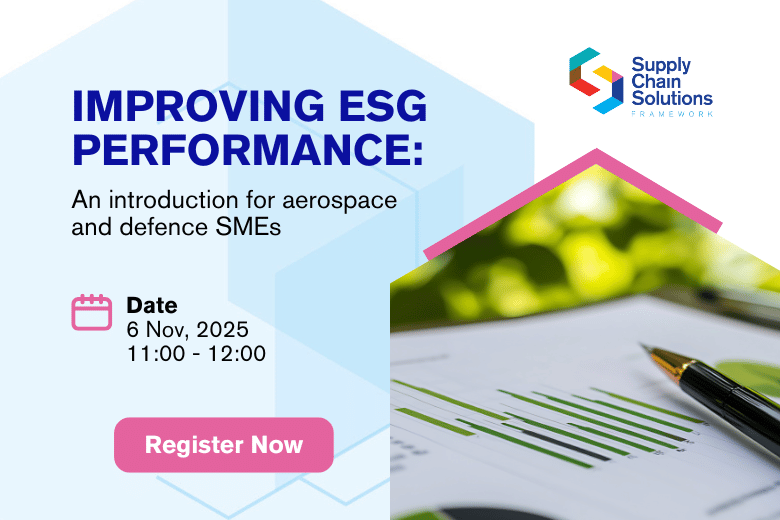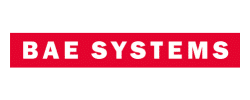Increasingly for aerospace and defence SMEs, the pressure around Environmental, Social and Governance planning can feel daunting. Regulations are tightening, and ESG performance is now an essential part of both supply chain relationships and bid preparation.
Most SMEs do not have an ESG department – meaning the responsibility often falls across already stretched teams. That’s why having a clear, integrated strategy can make all the difference. By embedding ESG into existing functions – from operations and compliance to finance and business development – it can improve implementation success and employee buy-in, thus strengthening their competitive position.
Our ESG Pathway is designed to support this journey. ESG Executive, Jordan Croskery explains,
Our ESG Pathway provides a structured, step-by-step process that helps SMEs build capability across departments, making ESG less of a burden and more of a driver of sustainable growth.
Just one thing: Small steps. Big Impact
Sometimes focusing on one thing is enough for companies to start their journey. Here are some examples of the steps taken by SMEs in the aerospace sector, to improve their ESG performance:
- Sustainable Materials & Design: Use of lightweight, recyclable, or bio-based materials to reduce emissions.
- Energy Efficiency & Emissions Reduction: Transition to renewable energy sources in manufacturing facilities and investment in low emission propulsion technologies (e.g., hydrogen, SAF).
- Carbon Footprint Tracking: Use of digital tools to monitor Scope 1, 2, and 3 emissions.
- Workforce Development: Upskilling employees in green technologies and digital tools. STEM education and apprenticeships in underserved communities.
- Community Engagement: Partner with local organisations for environmental education.
For other companies, recognition in their ESG performance is a requisite to change. That’s why, we have created our bronze, silver and gold accreditations, mapping out ESG transformation in an increasingly structured and evidenced way.
So, what does it take to get to Bronze? Here’s an overview of what’s required.
Getting to ESG Bronze – Checklist
Environmental
- Corporate GHG emissions – Annual emissions reporting is conducted, and strategic planning underpins GHG performance improvement.
- Energy Efficiency – Energy efficiency assessments conducted.
- Waste Management – waste planning and audit process in place.
- Water utilisation – water efficient and energy efficient measures are part of the EMS system and data is being utilised.
Social
- Ethical Standards – Compliance checks, ethical sourcing, and supplier assessments have been fully integrated.
- Occupational Health & Safety – Comprehensive H&S system including well defined policies and processes. Human rights initiatives are fully integrated into the business.
- Wellbeing and Welfare – Initiatives for healthy work life balance in place
Governance
- ESG Policy Adoption – The ESG commitment integrated into the board’s governance practices. ESG champion has been actively involved in promoting and overseeing ESG initiatives within the organisation.
- ESG Reporting – ESG review meetings conducted regularly with a continuous engagement plan and ESG data collection approach has been refined and optimized.
- Policy and Process – The ESG policy has been integrated, demonstrating a long-term commitment to ESG standards.
- Training and development – Resource allocation and ESG training program in place.
Ready to take your first steps?
Whether looking to start with one small change, or a structured route to Bronze standard, here are some steps to get you started.
- Analyse your current performance and identify ways to improve
Answer a series of self-assessment questions to benchmark your performance, and determine your maturity from Bronze, Silver or Gold. An instant report provides detailed analysis and resources to improve. Access the self-assessment tool here.
- Read our guide to GHG reporting for aerospace and defence SMEs
Measuring and reporting greenhouse gas (GHG) emissions is foundational for a sustainable future. This comprehensive guide, bespoke to aerospace and defence SMEs, provides practical insights, step by step instructions and a worked example for both mandatory and voluntary GHG reporting. Access the guide here.
- Sign up to our webinar: 6 November 11:00 – 12:00
Join our webinar to hear more about our tools and services to support your ESG goals including the GHG Guidance and Reporting, ESG Assessment Tools, CBAM, and more.
Conclusion
With more than 5.6 million UK SMEs accounting for approximately 43-53% of the UK’s carbon emissions, according to a recent report, they hold great potential to drive meaningful progress in sustainable innovation.
As part of ADS, the UK trade association representing over 1,600 members in the aerospace, defence, security and space sectors, we are uniquely positioned to support this transition. From providing tailored guidance and practical tools to facilitating peer learning and amplifying success stories, we help SMEs turn ESG ambition into action.
















